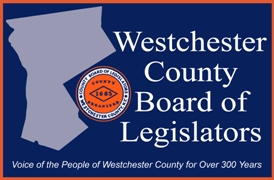COMMITTEE ON LABOR
MINUTES: May 9, 2005, 4:00 PM
IN ATTENDANCE: LABOR COMMITTEE MEMBERS: Legislators Jose Alvarado, Chair and James Maisano; BOL Staff: Barbara Arrington Dodds, Diana Toledo; CE’s Office: Andrew Neuman, William Randolph; Others: Ralph Butler, Commissioner of Public Works; Michael Trinchi, Central Labor Council; Richard Ryan, Yonkers Electrical Co.
MINUTES APPROVED AS CORRECTED FOR APRIL 25, 2005
ITEMS FOR DISCUSSION:
Apprenticeship Training Law
With a quorum present, Legislator Alvarado called the meeting to order at 4:25 PM. The subject of the meeting is the Apprenticeship Training Law, continued from the last meeting and this time to hear another side. Andrew Neuman, Ralph Butler, Richard Ryan and Mike Trinchi were invited to the table.
Based on the hearings held in 2002 and committee discussions, Andrew Neuman said the administration prepared another version in March 2004 raising the threshold to $250,000. Leg. Maisano said that although they talked about this version it had never come before the committee. Ralph Butler said that the apprenticeship requirement is not new for the County and, by executive order of the County Executive, county contractors on jobs of $50,000 or more plus a workforce of 14 or more were required to have training programs.
Leg. Maisano said that everyone agreed with the principle of the law—the problems that he heard at the hearing were that the threshold was too low and that the non-union shops had difficulties getting into the training programs. Neuman said there is a section that reads the provision will not apply to contractors or sub-contractors engaged in occupations that are not registered as apprenticeable by the NYS Commissioner of Labor. It only applies to those occupations the department already registers. Maisano said most of the speakers complained that the process was long and difficult. Neuman replied that under the current executive order there are requirements and that doesn’t seem to be an issue. Mike Trinchi added that there are many schools with programs in addition to the state program, it should be easy to enroll in since the unions have their own.
Legislator Alvarado asked Richard Ryan, President, Yonkers Electric Co., for his comments since he was one of the strongest opponents to the bill at the hearing.
Ryan said all agreed that apprenticeship is a good thing in principle. Organized labor is much further along on this than non-union contractors. In reference to the 14 employees cited in the executive order, Ryan said he had done a $15 M job at the County Courthouse for about 5 years. He used over 14 employees for only about 6 months. At the prevailing wage rate, $250,000 is a relatively small job. He also said he had not seen a provision on contracts he had signed about the apprenticeship program. Butler said it was on page 14 of every contract.
Ryan went on to say that there were other issues raised at the hearing:
1) Why is it specifically required to be in a New York State training program? Required programs should not be limited to the New York State program. Neuman responded that we couldn’t go beyond what the NYS Legislature says. Trinchi added that New York has the highest standards over other states.
2) Ryan said he met with Christine Timbre, the Apprenticeship Director for the NYS Dept. of Labor and she agrees that this law should require that apprentices be on the job. There is nothing in the law that says how many have to be on the job. This guarantees that apprentices were actually used on the job and brought into the industry. It also legitimatizes the law. In his experience, some labor unions restrict the number of apprentices because they want to protect the journeyman wage, which will bring in more income.
Many perceive the law as favorable for organized labor. The unions don’t have to apply to New York State, they don’t have to wait 18 months and go through all kinds of reviews. They get registered just by signing up with the union. There should be a grace period of more than a year. Leg. Maisano asked how long it would take a non-union contractor to qualify to bid on a county contract? Ryan replied eighteen months on an average and said that when he was with the union, all he had to do was sign the collective bargaining agreement--it’s that simple. I’m in favor of a constant supply of apprentices coming into the workplace, he said, but not for groups using it for their own benefit.
Leg. Maisano asked Ralph Butler to put in context what $250,000 means—do a lot of contracts fall above or beneath that? Butler said looking at the building trade that’s about the middle dollar value contracts. Leg. Maisano also asked if there are people who are getting county contracts right now that don’t have apprenticeship programs and just haven’t really been checked. Ralph Butler said we are probably picking up a large percentage and Mike Trinchi added that once a couple of people get caught they are going to see it is not worth it.
Leg. Alvarado asked Richard Ryan what he would consider a satisfactory threshold?
Ryan said a minimum should be a half million dollars. Leg. Maisano remembered the committee discussing between $250,000 and $500,000 two years ago and he asked that we contact the Labor Dept. to see what range and what threshold were commonplace. Leg. Alvarado said we would get those facts together within a week from Christine Timbre.
Ryan asked is the threshold overall or each prime? Butler responded each prime.
Leg. Alvarado said if the committee feels comfortable, the legislation can be set for a hearing. As it is, this law would lift the threshold from the executive order and we may want to extend the grace period.
The minutes of the April 25, 2005 meeting were corrected and approved. Meeting was adjourned.


